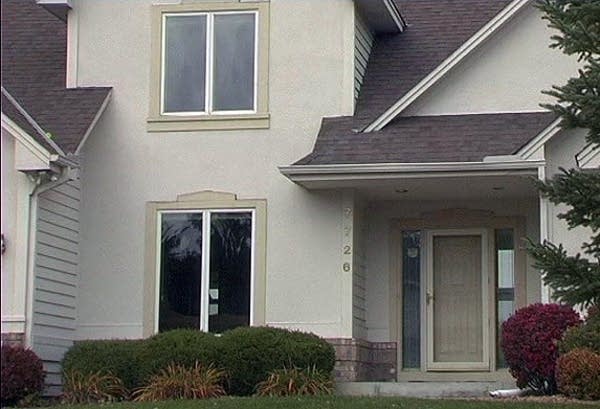Group homes for troubled teens closing after 18 years

Hearthstone of Minnesota, a Twin Cities nonprofit that ran small group homes for deeply troubled teens, closed its doors Friday.
County social services placed boys with Hearthstone, when families, relatives and foster care weren't an option for them anymore. And now, Hearthstone, a place that gave second chances to hundreds of young people in its 18-year history, is at the end of the line itself.
Not much went right in the lives of the boys living at Hearthstone. The nonprofit's founder and president, Jan Gibson Talbot, tried to change that.
"They come from pretty significant backgrounds of abuse, neglect, may have had a parent or two with mental illness, chemical dependency," Talbot said. "Most of our kids have been extremely poor. There have been lots of disruptions in their lives in terms of moving in and out of various placements -- whether it's in and out of their own home, foster care, other group home settings, in some cases correctional settings."
Create a More Connected Minnesota
MPR News is your trusted resource for the news you need. With your support, MPR News brings accessible, courageous journalism and authentic conversation to everyone - free of paywalls and barriers. Your gift makes a difference.
The premise of Hearthstone was that these boys could be saved if given some stability, safety and adults they could trust. Boys ages 12 to 18 might would stay a few months, or until they turned 18. The six homes were located mostly in suburban neighborhoods, and one was in Minneapolis.

The small group homes were run like families. Six kids would share family meals, holidays, and Saturday morning cleaning marathons. Talbot stresses Hearthstone didn't give up on kids, no matter how much they were tested.
"We made a decision early on, that there were not going to be X numbers of holes in wall, or X numbers of runaways, or X numbers of school suspensions that would have us say we're done with children," she said. "We have kids that may punch [the] same hole in a wall 10 days in a row. Our maintenance guy is out there 10 days in a row to fix the hole. And we've got staff saying, 'That strategy didn't work. What other strategy can we try?'"
That determination to stick with kids through anything is what Talbot said has made it so wrenching to close the organization. But she said she had no choice. Hearthstone's biggest client, Hennepin County, reduced the number of kids it was sending, and philanthropic support couldn't make up the difference.
Brian Guidera manages out-of-home children's placement for Hennepin County. Both Guidera and Talbot agree it's a bit of a mystery why fewer kids were coming into the system, given the tough economy and stress on families. But the numbers were dropping.

"This year, we're already on track to be almost 30 percent fewer out-of-home placements since 2007-2008," Guidera said. "So you actually see the trends trending downward."
Hearthstone was expensive. It cost the county $228.89 per day, per child to provide therapeutic care at these small group homes.
Guidera said the drop in placements isn't because of county cost-cutting. Demographic changes mean there are fewer teenagers to serve right now.
He also thinks some community interventions like children's mental health services might be working, meaning fewer kids need to take the drastic step of living outside their families.
But Guidera said there will probably always be youngsters so troubled that they do need a place like Hearthstone of Minnesota. And as of Friday, it's gone.
"It's a very big loss. I mean, there's no comparable program at this point in the metro area," he said.
And it could stay that way.

Jon Pratt, executive director of the Minnesota Council of Non-Profits, is concerned about the "hollowing out" of the nonprofit sector. He names Wilder Foundation's major cutbacks in residential care for children, and the demise of long-time organizations like Centro Legale, the Minnesota Senior Federation and East Metro OIC, a job training program for low-income people.
"There are new structural holes in the safety net, where things that used to exist no longer exist," Pratt said. "How do you replace them? They may not be replaced at all."
In the case of Hearthstone, no one could step in and house the 22 boys living there. Some have been reunited early with their families or moved in with foster families. Others were emancipated -- that is, they'll live on their own, but without the aftercare support Hearthstone used to provide until they turned 25.
In nearly two decades of existence, Hearthstone worked with 634 young people. Jan Gibson Talbot said their limited tracking data showed Hearthstone helped them. They had lower rates of homelessness and criminal activities, and good success in completing high school and entering vocational school or college.
Fifty-five full-time and 25 part-time Hearthstone employees have lost their jobs. Talbot said staff tried to use the closing as a teachable moment for the children -- how can they manage change in a healthy, positive way.
"How do you end well, as opposed to busting the 10th hole in the wall and getting kicked out, and landing in a shelter, and then going to the next placement?" Talbot said. "So if there's any silver lining, it's about giving the opportunity to close with us, and to pack up your things, and to take your memory book and to do all the things as you move to the next piece of your life."
Talbot isn't sure what her next piece will be. After 18 years of providing shelter for kids, she thinks she might want to work with the homeless -- a fate she tried so hard to help her Hearthstone kids avoid.
